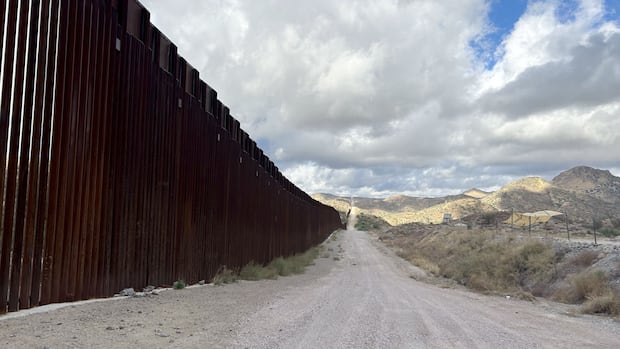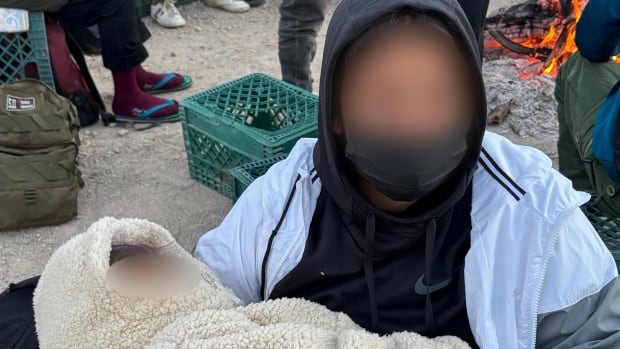
The Current1:14:23America Votes: Stories from the Arizona border, its politics and its people
In the Arizona desert last week, just north of the U.S. border with Mexico, a group of volunteers helped newly arrived migrants call the family and friends they had left behind in other parts of the world.
“[I’m] in America, in America,” an Egyptian man excitedly told loved ones over a video call.
The migrants had crossed the border illegally hours before, hoping to claim asylum when they encountered U.S. officials. But the volunteers found them first — huddled around a fire before sunrise, wrapped in coats and towels against the frigid night air.
“There’s so much hope and excitement in their eyes,” said Margaret Coffran, a volunteer with the Green Valley-Sahuarita Samaritans (GVSS).
“They finally are standing on U.S. soil,” she told The Current’s Matt Galloway, who joined GVSS on this trip into the desert last week.
“This is a big day for them.”
WATCH | Going into the desert to help migrants at a dangerous border:
In the middle of the night, volunteers with Green Valley-Sahuarita Samaritans headed into the Arizona desert to help migrants making the harrowing journey across the U.S. border. The group provides humanitarian aid for migrants before they’re processed by border officials. CBC Radio’s The Current joined them.
The volunteers met at 4 a.m. and drove two hours into the desert in SUVs loaded with food, water and medical supplies. They’re not trying to circumvent the work of border patrol officials but work to “relieve the suffering” of migrants, offering sustenance, advice or even simple kindnesses — like paper and pens for kids to draw with.
They found this group of migrants at the beginning of a 15-kilometre gap in the border wall, a known drop-off point for criminals who traffic people to the border. Those crossings have become a political flashpoint in Arizona, a swing state that could play a decisive role in the looming U.S. election.
Arriving as the sun rose, the volunteers met 33 migrants from places as far-flung as Egypt, Turkey, Nepal and Cameroon. Many refused to share their full names with CBC, fearing for their asylum claims or repercussions for family back home.
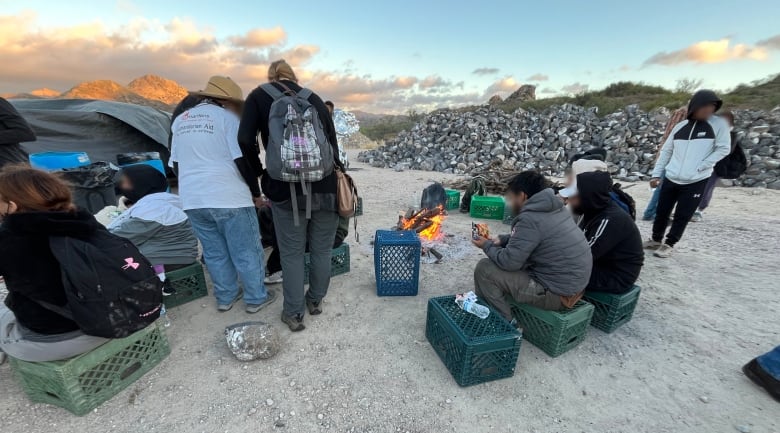
By the fire, a young woman sat on a milk crate, her four-year-old daughter fast asleep in her lap. Through a translator, she gave her name as America and said they’d left their home in Guanajuato, central Mexico, a week ago. They left to escape violent gangs, she said, and were trying to reach her spouse, who was already in the U.S.
A 29-year-old man from Rwanda said his three-week journey was a “horrible … very difficult experience.” He said he fled military conscription at home and wouldn’t share his name out of concern for his family’s safety.
He said he never imagined making this journey.
“You leave your loved ones,” he said. “You don’t know when you’re going to see them.”
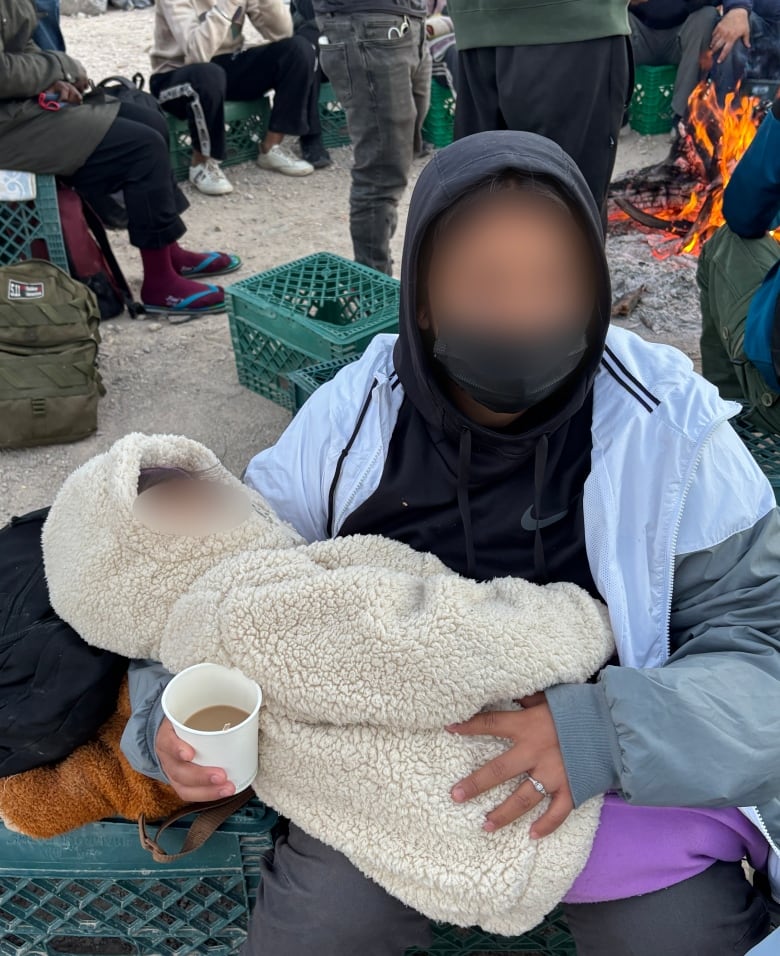
Ranchers says thousands cross his land
The migrants crossed on to Jim Chilton’s 20,000-hectare ranch, which runs along the border for almost nine kilometres just south of Arivaca, Ariz.
“I have five motion-activated cameras … [and] I have gotten over 3,550 images of people in camouflage and carpet shoes and backpacks since [U.S] President [Joe] Biden was elected,” said Chilton, whose experiences at the border earned him a speaking spot at the Republican National Convention in July.
Chilton has a pile of those carpet shoes, found discarded on his land. They’re slip-on shoes with soles made of soft material that helps to conceal footprints. Chilton said officials have intercepted criminals crossing his land ferrying drugs and weapons — and some of those encounters have been violent.
“I dislike the idea that people are coming through my ranch to poison our people and take it all the way to Canada,” he said, referencing drug smuggling and the fentanyl crisis.
Migrants coming to claim asylum, meanwhile, “don’t bother me as much,” Chilton said.
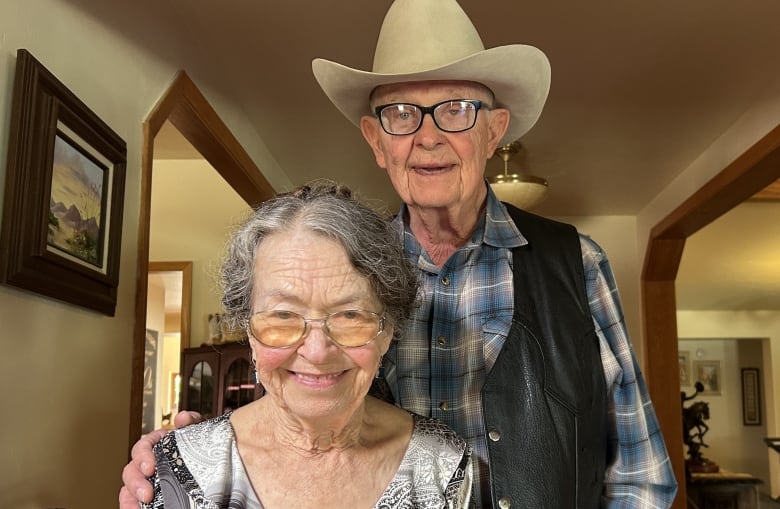
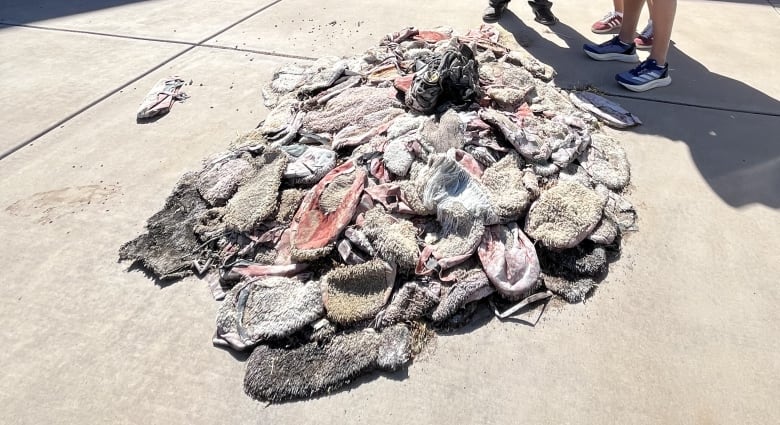
Biden initially promised a more welcoming approach to immigration when he was elected. But after monthly border encounters grew — reaching 249,741 last December — Biden imposed fresh restrictions on asylum seekers in June. Those encounters dropped 77 per cent — to 58,038 people — by August, according to the Pew Research Center.
Democratic nominee Kamala Harris visited Arizona last month, where she pledged to toughen the asylum laws enacted earlier this year, as well as crack down on drug smuggling.
The Republican nominee, Donald Trump, said he’ll secure the border by completing the wall he started building in his first term — and conduct a mass deportation of undocumented migrants.
Chilton said he’s praying for a Trump victory.
“He’ll finish the wall, he’ll put the trenches in and he’ll put the personnel that are needed at the border,” he said.
“People coming in the country should come in legally, not illegally.”
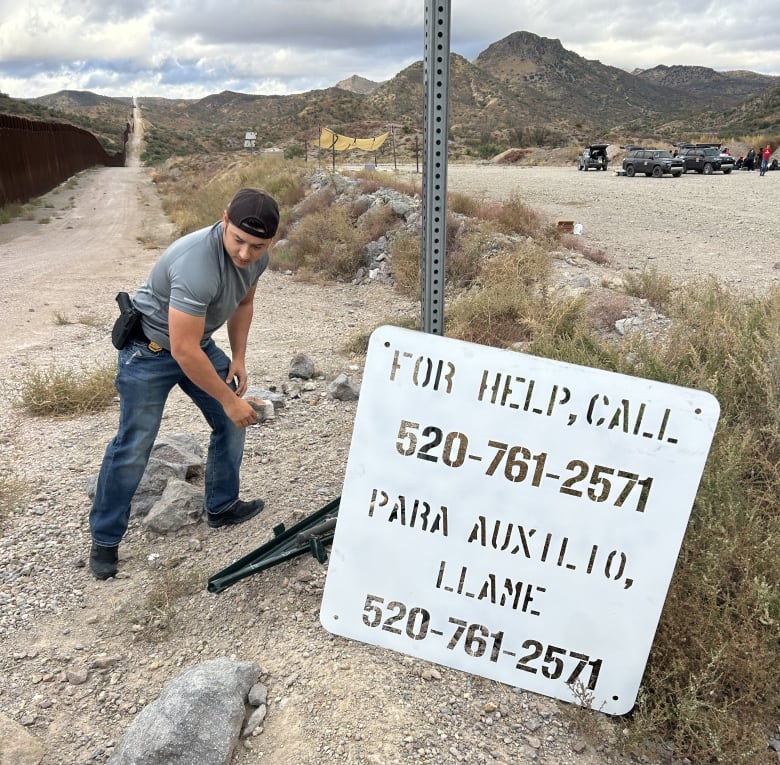
Coffran, the GVSS volunteer, thinks the idea of completing the wall is “silly.”
“There’s no way to physically close off our whole border unless you want to spend another couple billion dollars doing it, blowing through mountains,” she said.
She said most of the migrants she meets in the desert are families, looking to start new lives and contribute.
“They have gifts to bring to our country and we have gifts to share with them,” she said. “America’s definition for existence is diversity. And now we’re shutting that part of us away.”
Both parties engaged in ‘political theatre’
Back in the desert, U.S. officials arrive and organize the migrants into groups. America and her daughter climb into the back of a truck and are driven away to start their asylum claim.
Mark Gerrish, a border agent, installs a sign with an emergency number that migrants can call if they need help. He’s familiar with the work of GVSS, and thinks, “If people are trying to help people, that’s generally a good thing.”
“[But] sometimes it’s complicated around here,” he added. “Not everyone realizes how complicated; they try to make it simpler than it really is.”
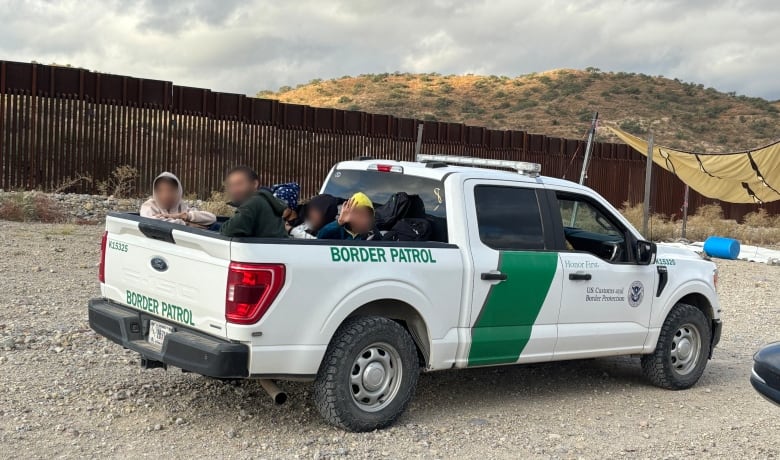
By 8 a.m., the volunteers are packing up tables, stoves and coffee, ready to return the next day.
Randy Mayer, who runs GVSS, says he finds it frustrating that he can’t help with whatever comes next for these migrants, some of whom may face deportation within days.
“Middle America thinks that immigration is a bad thing for the United States, and they think it’s all about criminals,” said Mayer, a pastor at a local church.
“But the reality is all these people are escaping really bad situations. They should be given the opportunity to at least prove that.”
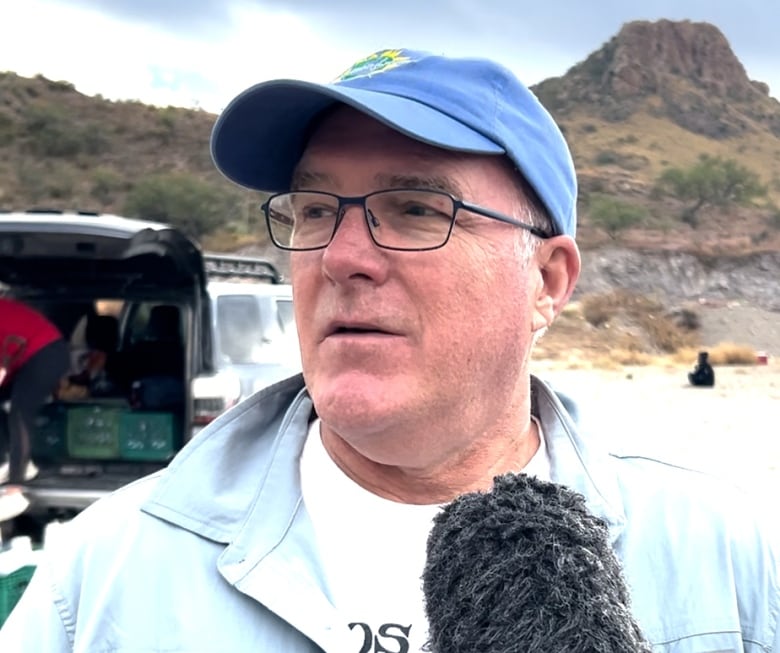
Mayer has been doing humanitarian work on the border for almost 30 years. He believes there isn’t much difference in how the Republicans or Democrats approach the problem, even if one candidate engages more in “ugly rhetoric.”
“Every single administration has put more militarization, more agents — and then the next administration just builds on top of that,” he said.
“It’s just political theatre, is what it is. It’s not a solution to anything and it just makes people’s lives miserable.”
Mayer pointed to how treacherous crossing the Arizona desert can be. More than 4,300 people have died since 2000, with the remains of 114 people presumed to be trying to reach the border discovered in the first eight months of 2024, according to the non-profit Humane Borders.
Mayer said GVSS has saved thousands of lives over the years, but in some ways these migrants saved him too.
“My life is completely changed … it’s softened my heart,” he said.
“It’s shown me that compassion and love are a much more meaningful pathway than to build walls and barriers and make the world all about me.”
